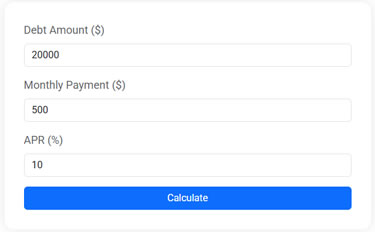From Debt to Wealth: Transform Your Finances Today

Turning your financial situation around involves understanding your current financial status, creating a realistic budget, and developing a strategic debt repayment plan. Building an emergency fund and investing in your future are also crucial steps in achieving financial independence. With commitment, discipline, and smart planning, you can successfully transition from being debt-laden to wealth-generating.
Imagine waking up every morning knowing that your financial woes are a thing of the past. Picture a life where your money works for you, not the other way around. The transition from being knee-deep in debt to accumulating wealth might seem like a daunting journey, but with the right approach, it can be a transformative experience. Let’s delve into the practical steps that can lead you from debt-ridden days to wealth-generating ways.
The road to financial freedom starts with taking a good, hard look at where you stand today. From there, you'll chart a clear path forward, one that's marked by savvy budgeting, strategic debt repayment, and smart investing. With dedication and a bit of elbow grease, you'll be well on your way to achieving the financial independence you've always dreamed of.
Understanding Your Current Financial Status
Before you can make any meaningful changes, you need to understand exactly where you are financially. This means taking stock of your income, expenses, assets, and liabilities. It's a bit like cleaning out your closet before a big move. You have to know what you own to know what to keep and what to toss.
Start by listing all your debts, from credit cards and student loans to mortgages and car payments. It's crucial to know not just the total amounts but also the interest rates and minimum payments associated with each. This will help you prioritize which debts to tackle first. According to financial advisor Jane Smith, "Knowing your interest rates is the first step to crafting an effective debt repayment strategy."
Next, assess your income streams. Are you maximizing your earning potential? Look for opportunities to increase your income, whether through negotiating a raise, taking on additional work, or exploring side hustles. The goal here is to create a clear picture of your financial landscape, so you can identify both challenges and opportunities.
Creating a Realistic Budget
Once you have a handle on your financial situation, it's time to create a budget that reflects your goals and realities. A budget isn't just a list of restrictions; it's a plan for how to spend your money intentionally. Think of it as your financial roadmap.
Begin by categorizing your expenses into needs and wants. Essential expenses like housing, utilities, groceries, and transportation should take priority. Then, allocate funds for discretionary spending, but be mindful of how much goes into this category. As CNBC notes, "A realistic budget balances your lifestyle desires with your financial goals."
It's also important to leave room for savings in your budget. Aim to set aside a percentage of your income each month, even if it's small at first. This habit will serve you well as you work towards financial stability. Remember, a budget isn't static—it should evolve as your financial situation changes.
Debt Payoff Calculator
Plan your financial future by estimating how long it will take to pay off your debt based on your balance, annual percentage rate (APR), and monthly payment. After entering your figures, the calculator determines the number of months needed to fully repay the debt and calculates the total interest paid over time.
Developing a Strategic Debt Repayment Plan
With a budget in place, you can focus on tackling your debt. One popular strategy is the debt snowball method, where you pay off debts from smallest to largest, building momentum as you go. Alternatively, the debt avalanche method focuses on paying off the highest-interest debts first, which can save you money on interest over time.
Choose the method that resonates most with you. The key is consistency and commitment. As financial expert Dave Ramsey puts it, "Debt is not a math problem, it's a behavior problem." This means addressing the spending habits and financial decisions that got you into debt in the first place.
Consider consolidating your debt if it makes sense for your situation. This could mean taking out a personal loan to pay off high-interest credit cards or transferring balances to a card with a lower interest rate. However, be cautious and read the fine print to ensure you're not inadvertently increasing your debt load.
Building an Emergency Fund
An emergency fund is a safety net that can prevent you from falling back into debt when unexpected expenses arise. Aim to save three to six months' worth of expenses, but don't be discouraged if you can't do this overnight.
Start with a modest goal, like $500 or $1,000, and gradually build from there. Automate your savings by setting up a direct transfer from your checking account to a dedicated savings account. This creates a "set it and forget it" approach that makes saving easier.
Having an emergency fund offers peace of mind and financial stability. It ensures that you're prepared for life's surprises, from car repairs to medical bills, without derailing your progress towards wealth.
Investing in Your Future
Once your debt is under control and you've established an emergency fund, it's time to focus on building wealth through investments. Start by contributing to retirement accounts, such as a 401(k) or IRA, to take advantage of tax benefits and compound growth.
Consider diversifying your investments across different asset classes, such as stocks, bonds, and real estate. This not only spreads risk but also increases potential returns. As Warren Buffett famously advises, "Never depend on a single income. Make investment to create a second source."
Educate yourself on different investment options and strategies. There are plenty of resources available, from online courses to financial advisors who can help you develop a personalized investment plan. Remember, investing is a long-term game, so patience and discipline are key.
The Power of Commitment and Discipline
Transforming your finances from debt to wealth requires more than just a plan—it demands unwavering commitment and discipline. Set clear, measurable goals and track your progress regularly. Celebrate milestones along the way to stay motivated.
Surround yourself with a supportive community, whether it's friends, family, or online groups focused on financial wellness. Sharing your journey with others can provide encouragement and accountability. As the saying goes, "Success is a team sport."
Remember, setbacks are a natural part of any financial journey. The important thing is to learn from them and keep moving forward. With dedication and a strategic approach, you can rewrite your financial story and achieve the wealth and freedom you desire.








